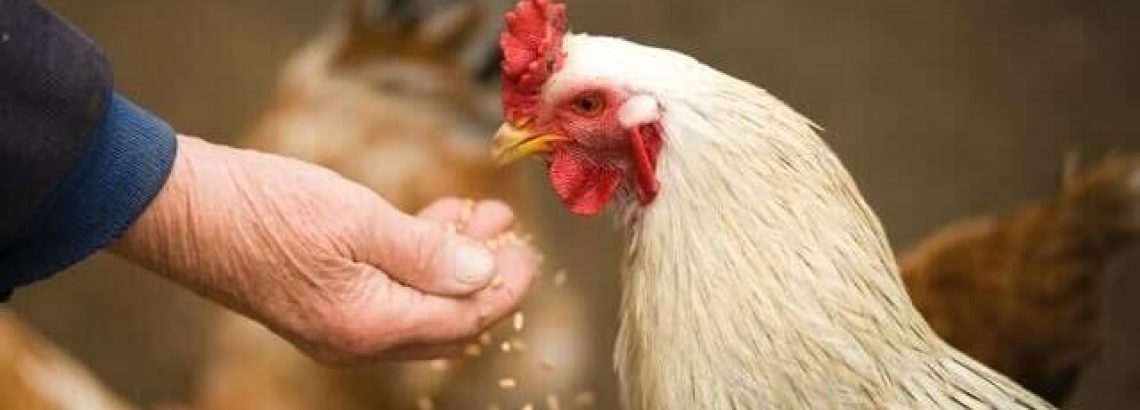Last updated on June 6th, 2023
Spirulina is a type of microalgae that holds many antiviral, antifungal, and antioxidant properties and has the perfect composition of minerals and vitamins to maintain chicken health. While it only amounts to about 0.5% of their total feeding, it covers the majority of their nutritional needs.
You can supplement your chicken feed with dry spirulina powder from the store, but if you have a bit of space and you’re up for a scientific adventure, growing spirulina at home or in your backyard will actually result in a much better, fresher product that is also easy and relatively cheap to produce.
Whether you’re growing broiler chickens or laying hens, spirulina’s rich nutrient composition will provide your chickens with important amino acids, vitamins, and trace elements, which help improve their digestion. Spirulina chicken feed supplementation also strengthens chickens’ immune systems, which reduces the need for antibiotics, medications, and expensive multivitamin formulas.
Altogether, the nutrients found naturally in Spirulina help chicken to fight against the stresses generally linked with standard farming practices.
Studies Have Shown that Spirulina…
- Decreases Splenic Bacteria by 87% At 0.1% Spirulina inclusion rate for white Leghorn chicks
- Increases Fertility by 9% At all levels of Spirulina inclusion from 1.5-12%
- Increases growth rate by 3% At 5 gr/kg spirulina inclusion ratio
- Reduces mortality rate by 2% – Current industry average is 4.8% with antibiotic growth promoters
Main advantages of spirulina for chickens
- Increased pigmentation in the egg yolk due to higher carotenoids
- Increased antibodies and gut microbiome for stronger immunity
- Decreased mortality by at least 2%
- Enriches eggs with Vitamin A and Carotenoids
- Enriches muscle redness
- Eliminates bacteria and infections
- Increases chicken growth rate and weight
- Increases the fertility and reproductivity of laying hens
- Brighter feathers with a better visual appearance
- No known side effects
The Commercial Benefits of Spirulina for chickens
Brighter Eggs Means Higher Product Value
Spirulina’s effect on yolk color results from its high-level content of zeaxanthin, xanthophylls, and other carotenoid pigments, particularly β-carotene, which accumulates within the egg yolk. These same compounds have been found to also accumulate within the chicken’s muscle tissue.
Alternative to Antibiotic Growth Promoters
Venkataraman et al. (1994) found that vitamin-mineral premixes and Antibiotic Growth promoters normally added to chicken feed rations can be omitted when Spirulina is included; this is due to increased functionality of macrophage in the gut microbiome and overall mononuclear phagocyte system indicative of enhanced disease resistance with increased spirulina supplementation.
Greater Cost Efficiency & Feed Conversion Rate
Spirulina has been shown to be an effective means of altering chicken product quality to meet consumer preferences for richer, more nutritious eggs. Qureshi et al. (1996) found improved chicken health with only 10gr of Spirulina per kg of chicken feed formula, indicating greater production cost efficiency.
Scientific Backing
Balanced Poultry Nutrition
Spirulina chicken feed supplements contain active substances of antibacterial and antiviral properties which can restrain penicillium, staphylococcus aureus, hay bacillus, coliform bacteria, etc. Spirulina balances poultry nutrition, promotes metabolism and absorption of nutrients, and reduces the risk of mortality due to the presence of micronutrients, vitamins, and minerals.
Lower Egg Cholesterol
According to studies, the total cholesterol content of eggs can be lowered by including Spirulina in layer hen rations (Sujatha and Narahari 2011). This is mainly due to Spirulina’s high antioxidant and omega-3 polyunsaturated fatty acids (PUFA) content, which enriches the nutritional value of eggs at the expense of cholesterol content (Rajesha et al. 2011; Sujatha and Narahari 2011).
Improved Amino Acid Content
Spirulina supplements for poultry are in fact a multi-mineral formula containing carotene, tocopherols, and unsaturated fatty acids, including L-alanine, methionine, histidine, glycine, arginine, ornithine, and glutamic acid, which strengthen chicken resistance to irritability, stress, and disease.
Ready to start growing spirulina for your chickens?
Here are some ways we can help














